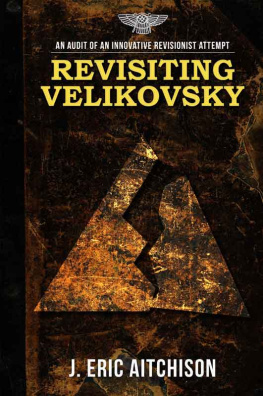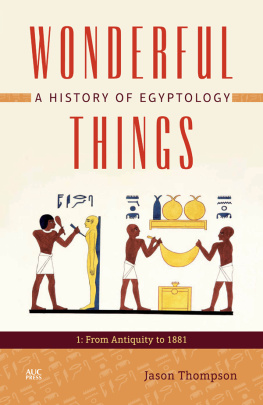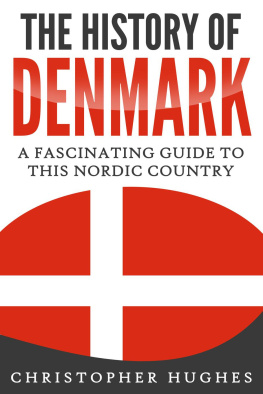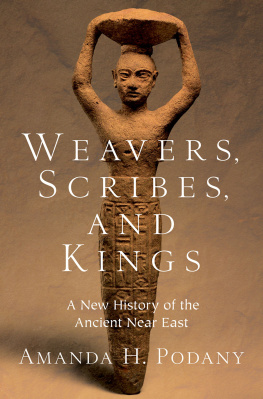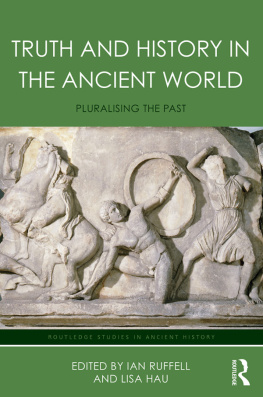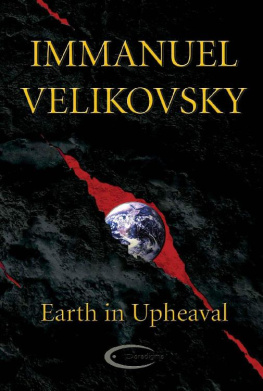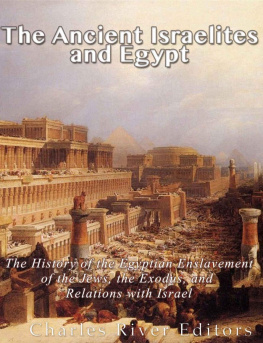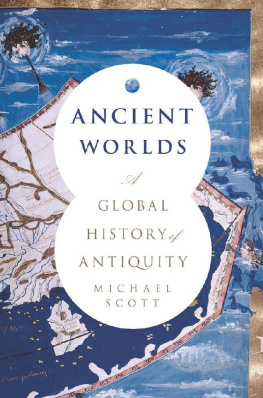Immanuel Velikovsky
AGES IN CHAOS
VOLUME I
FROM THE EXODUS
TO KING AKHNATON

Doubleday & Company, Inc.
GARDEN CITY, NEW YORK, 1952
COPYRIGHT 1952
BY IMMANUEL VELIKOVSKY
ALL RIGHTS RESERVED
PRINTED IN THE UNITED STATES
AT
THE COUNTRY LIFE PRESS
GARDEN CITY, N.Y.
FIRST EDITION
FOREWORD
AGES IN CHAOS was conceived in the spring of 1940. It was then that I realized that the Exodus had occurred in the midst of a natural upheaval and that this catastrophe might prove to be the connecting link between the Israelite and Egyptian histories, if ancient Egyptian texts were found to contain references to a similar event. I found such references and before long had worked out a plan of reconstruction of ancient history from the Exodus to the conquest of the East by Alexander the Great. Already by October of the same year I had come to understand the nature and extent of that catastrophe. For a decade after that I worked simultaneously on Ages in Chaos and Worlds in Collision, the present work requiring the lion's share of the toil.
Ages in Chaos covers largely the period dealt with in Worlds in Collision - the eight hundred years from the Exodus of the Israelites from Egypt to the invasion of Palestine by Sennacherib in 687 B.C., and the additional three and a half centuries to Alexander of Macedonia, altogether twelve hundred years of the history of the ancient East. But whereas the first work concentrated on the description of the physical history of the period, the present work deals with its political and cultural aspects. The occurrence of a widespread natural catastrophe serves here only as the point of departure for constructing a revised chronology of the times and lands under consideration.
I searched the records of one land after another and went from one generation to another, taking from everywhere hints and clues, evidence and proof. Because I had to discover and to collate them, this book is written like a detective story. It is well known that in detective work unexpected associations are often built on minute details: a fingerprint on a bar of metal, a hair on a window sill, a burnt-out match in the bushes. Some details of an archaeological, chronological, or paleographic nature may seem minor matters, but they are the fingerprints of an investigation in which the history of many nations in many generations is vitally involved. Such details are not included to make the reading difficult; they are necessary to establish the main thesis of this work. Therefore, any attempt to read this book cursorily will prove to be a fruitless undertaking.
Correct strategy requires that once a bridgehead is established it should be fortified. Is it good judgment, instead, to open a second front against a new adversary?
After the publication of Worlds in Collision, a volume describing two acts of a celestial and terrestrial drama, reconstructed from the collective memory of the human race, a wise and proper move would have been to strengthen my position by following with a volume of geological and paleontological evidence of the same dramatic events in the life of the earth. And since this material from the realm of stones and bones is not rare but abundant, such an undertaking would seemingly not be difficult. It was therefore a great temptation for me to continue from where I had left off in Worlds in Collision, to prove again and again, from new angles, that catastrophes did take place and did disrupt slow-moving eve. lution in inanimate as well as animate nature. And in fact, since the publication of Worlds in Collision, I have devoted myself to organizing the evidence from geology and prehistory to supplement the literary and historical evidence of cosmic catastrophism, and to writing Earth in Upheaval, only little concerned with the storm aroused by my first book. But I found that the arguments presented in that book were not given a careful hearing, or even reading, particularly by those who protested the loudest. Would it help to produce in haste still more evidence? In my inner council on strategy, I decided to tarry no longer with Ages in Chaos, my opus magnum.
I call Ages in Chaos the second front because, after having disrupted the complacent peace of mind of a powerful group of astronomers and other textbook writers, I offer here major battle to the historians. The two volumes of the present work will be as disturbing to the historians as Worlds in Collision was to the astronomers. It is quite conceivable that historians will have even greater psychological difficulties in revising their views and in accepting the sequence of ancient history as established in Ages in Chaos than the astronomers had in accepting the story of cosmic catastrophes in the solar system in historical times. Indeed, a distinguished scholar, who has followed this work from the completion of the first draft in 1942, expressed this very idea. He said that he knows of no valid argument against the reconstruction of history presented here, but that psychologically it is almost impossible to change views acquired in the course of decades of reading, writing, and teaching.
The attempt to reconstruct radically the history of the ancient world, twelve hundred years in the life of many nations and kingdoms, unprecedented as it is, will meet severe censure from those who, in their teaching and writing, have already deeply committed themselves to the old concept of history. And many of those who look to acknowledged authorities for guidance will express their disbelief that a truth could have remained undiscovered so long, from which they will deduce that it cannot be a truth.
Should I have heeded the abuse with which a group of scientists condemned Worlds in Collision and its author? Unable to prove the book or any part of it wrong or any quoted document spurious, the members of that group indulged in outbursts of unscientific fury. They suppressed the book in the hands of its first publisher by the threat of a boycott of all the company's textbooks, despite the fact that when the book was already on the presses the publisher agreed to submit it to the censorship of three prominent scientists and it passed that censorship. When a new publisher took the book over, this group tried to suppress it there, too, by threats. They forced the dismissal of a scientist and an editor who openly took an objective stand, and thus drove many members of academic faculties into clandestine reading of Worlds in Collision and correspondence with its author. The guardians of dogma were, and still are, alert to stamp out the new teaching by exorcism and not by argument, degrading the learned guild in the eyes of the broad public, which does not believe that censorship and suppression are necessary to defend the truth. And here is a rule by which to know whether or chronological, or paleographic nature may seem minor matters, but they are the fingerprints of an investigation in which the history of many nations in many generations is vitally involved. Such details are not included to make the reading difficult; they are necessary to establish the main thesis of this work. Therefore, any attempt to read this book cursorily will prove to be a fruitless undertaking.
Correct strategy requires that once a bridgehead is established it should be fortified. Is it good judgment, instead, to open a second front against a new adversary?


